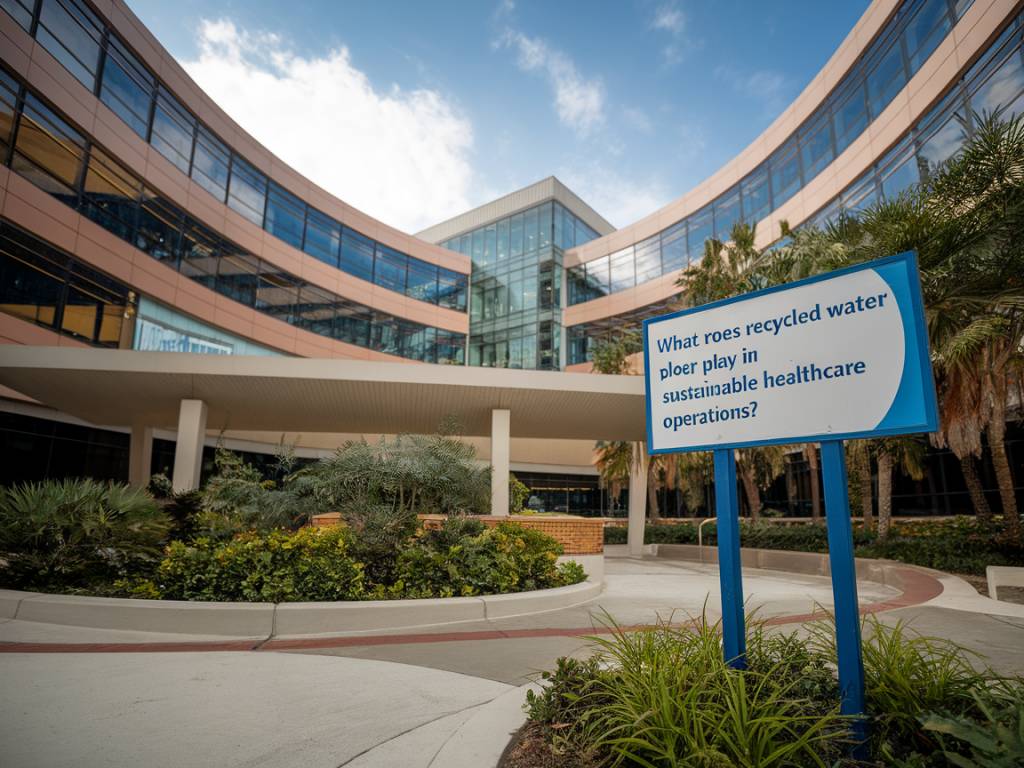The Invisible Hand of Recycled Water in Healthcare
Imagine a bustling hospital, a place of healing and hope, operating tirelessly to save lives. Amidst the controlled chaos, a silent contributor plays a vital role: recycled water. As the world shifts towards more sustainable practices, recycled water emerges as a cornerstone in building a responsible and resilient healthcare system. But how exactly does it work, and why is it essential?
Understanding Recycled Water: A Primer
Before diving into its role in healthcare, let’s first unravel what recycled water is. Simply put, recycled water is water that has been used once, collected, treated, and then repurposed for further use. The process might seem complex, but the concept is straightforward—maximizing every drop of this precious resource.
In healthcare settings, demands on water are extensive. From sterilizing instruments to maintaining hygiene, every healthcare facility relies on vast amounts of water daily. Integrating recycled water not only reduces environmental footprints but also serves as an economic benefit.
Applications of Recycled Water in Healthcare Facilities
Recycled water can be harnessed in various non-potable applications within healthcare facilities. Here are some common uses:
- Cooling Systems: Hospitals often require significant cooling mechanisms to maintain optimal conditions for both equipment and patients. Recycled water is ideal for cooling towers, offering a sustainable way to manage large-scale temperature regulation.
- Sanitation and Cleaning: While recycled water is not used directly for drinking or medical procedures, it is perfect for purposes like sanitation and general cleaning. Leveraging it in restrooms, laundry facilities, and for general cleaning helps conserve freshwater supplies.
- Landscape Irrigation: Many healthcare facilities boast extensive green spaces. Using recycled water for irrigation can significantly cut down on water wastage, ensuring that greenspaces flourish sustainably.
The Environmental and Economic Benefits
Why invest in recycled water systems, you ask? The advantages are multi-fold. Environmentally, utilizing recycled water reduces the demand on local water supplies and decreases the volume of wastewater discharge, lightening the load on municipal systems.
Economically, while initial investments in infrastructure may be substantial, the long-term savings on water expenses can be considerable. For larger healthcare operations, these savings can quickly offset the initial costs, making recycled water an attractive financial option.
Innovative Case Studies: Trailblazers in Sustainable Healthcare
Let’s explore some real-world examples of healthcare facilities pioneering the use of recycled water:
- The Green Hospital, USA: This facility has radically integrated recycled water for all its irrigation and cooling needs. The initiative has not only slashed their water consumption by 40% but has also inspired local institutions to adopt similar practices.
- The Eco-Friendly Medical Center, Australia: Tailoring their wastewater treatment on-site, this center uses recycled water for sanitation and in non-clinical areas. The result? A 30% reduction in fresh water usage.
Such facilities showcase the tangible benefits and the cultural shift towards sustainability within the medical community.
Challenges and Future Prospects
Integrating recycled water into healthcare operations isn’t devoid of challenges. Concerns about safety standards, initial infrastructure costs, and the need for adaptability in existing systems can pose significant hurdles. However, with rapidly advancing water treatment technologies and changing regulatory landscapes, these challenges are increasingly surmountable.
Future prospects remain promising. As technology evolves, the efficiency of water recycling systems will continue to improve. This evolution may lead to even broader applications within healthcare settings, further cementing recycled water as a staple of sustainable healthcare management.
Embracing a Water-Wise Culture in Healthcare
If water is the lifeblood of healthcare facilities, then recycled water is the pulse of innovation that ensures sustainability. By embracing this resource, the healthcare industry takes a crucial step not just toward environmental stewardship but also economic prudence and social responsibility.
One might wonder: How can patients and healthcare workers contribute? It’s all about fostering a culture of awareness. Educating staff and patients on water conservation and the role recycled water plays can ignite a collective consciousness aimed at preserving our planet’s precious resources.
Ultimately, recycled water is more than just about saving costs—it’s about securing a healthier future. So next time you step into a healthcare facility, take a moment to appreciate not just the care from its people, but the innovation behind its walls.






More Stories
Corporate wellness programs: how to integrate health monitoring devices?
What corporate health technologies can boost employee well-being?
Workplace health: what are the benefits of using recycled water?